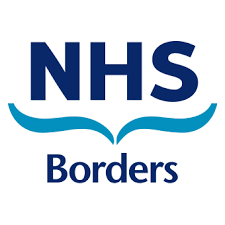Important: Therapy
Trimethoprim oral 200mg 12 hourly (3 days)
or
Nitrofurantoin oral 50mg 6 hourly or 100mg MR 12 hourly (3 days)

See under infection type
Trimethoprim oral 200mg 12 hourly (3 days)
or
Nitrofurantoin oral 50mg 6 hourly or 100mg MR 12 hourly (3 days)
Trimethoprim oral 200mg 12 hourly (7 days)
or
Nitrofurantoin oral 50mg 6 hourly or 100mg MR 12 hourly (7 days)
Cefalexin oral 250mg 6 hourly (7 days)
Mid-stream urine sample must be taken. Always treat asymptomatic bacteriuria.
A post-treatment specimen should always be sent.
Initial treatment
Amoxicillin 1g IV 8 hourly
Plus
Gentamicin IV (Extended Interval Dosing as per guideline) Use Gentamicin Calculator. Max 3 days then review.
Second line
Ciprofloxacin oral 500mg 12 hourly. Consider giving initial dose as 400mg IV.
Adjust therapy on basis of culture results or discuss with microbiology.
Total duration (IV&oral) = 7 days then review
In catheterised patients, the bladder quickly becomes colonised. Microscopy and/or “dip-stick” testing is unhelpful as WBC, rbc, nitrate and protein may all be positive when the bladder is colonised.
Catheter urine samples should be sent for culture and sensitivities only if patient is febrile or systemically unwell and bladder is the likely source.
If possible, remove catheter. Treat only if systematically unwell. If treating, the catheter should be changed.
Amoxicillin 1g IV 8 hourly
Plus
Gentamicin IV (Extended Interval Dosing as per guideline) Use Gentamicin Calculator. Max 3 days then review.
Second line
Vancomycin IV (Dosing as per guideline. Use vancomycin calculator.
Plus
Gentamicin IV (Extended Interval Dosing as per guideline) Use Gentamicin Calculator. Max 3 days then review.
Adjust therapy on basis of culture results or discuss with microbiology.
Total duration (IV&oral) = 7 days then review
First choice
Gentamicin
Dose: 3 mg/kg (lean body weight) up to a maximum of 320 mg IV single dose
or
Second choice
Trimethoprim
Dose: 200mg orally single dose
First line: Ciprofloxacin oral 500mg 12 hourly (4-6 weeks)
or
Second line: Trimethoprim oral 200mg 12 hourly (4-6 weeks)
Acute Prostatitis requires immediate treatment.
Chronic Prostatitis requires investigation before antimicrobials are started; only 10% of cases are caused by infection
Whenever possible, a specimen of urine should be collected for culture and sensitivity testing before starting antibacterial therapy. The therapy should reflect current local antibacterial sensitivity patterns.
In general asymptomatic bacteriuria in the elderly should not be treated with antibiotics. “Dip-stick” results are only helpful in MSU.
Remember genital tract sites e.g. vagina, prostate, may give rise to WBC on specimen microscopy.
Please contact a Nephrologist immediately if a kidney transplant patient is found to have a urinary tract infection.
Nitrofurantoin is contraindicated in patients with an eGFR <45ml/min. A short course (3-7days) may be used with caution in certain patients with an eGFR of 30-44ml/min. Only prescribe to such patients to treat lower UTI with suspected/proven multidrug resistant pathogens when the benefits of nitrofurantoin are considered to outweigh the risks of side effects.
Trimethoprim should be used with caution in patients with eGFR less than 30mL/min/1.73m2, refer to BNF for dose adjustments in renal impairment.